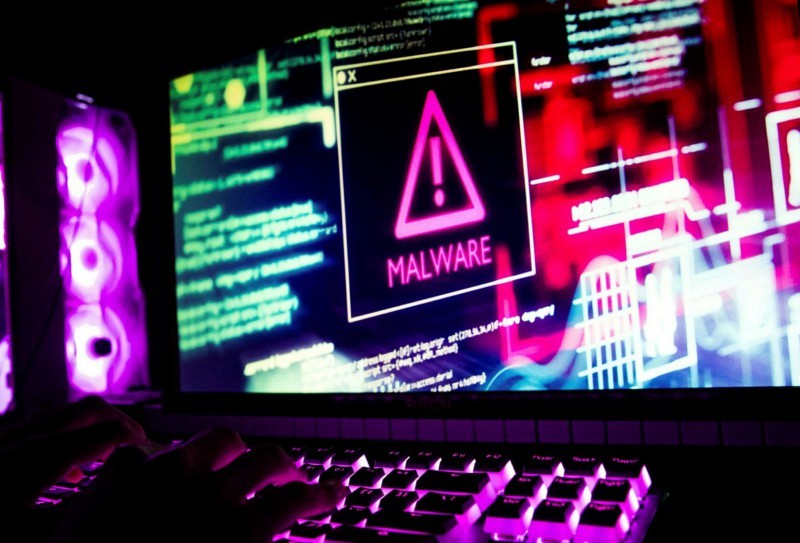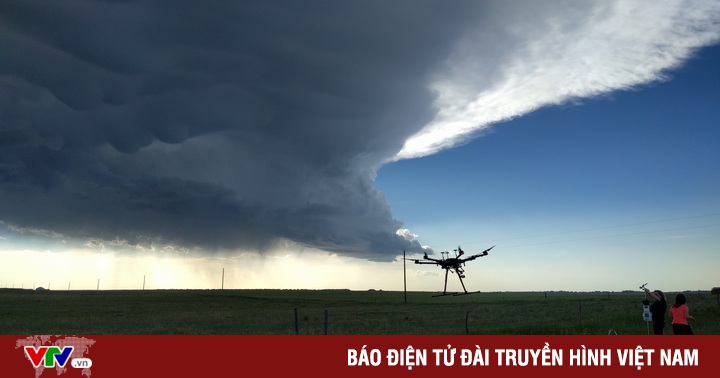Russia – Ukraine cyber war: Russia “gets enough” from the army of volunteer hackers
With nearly 300,000 hackers mobilized, this large army of Ukraine has repeatedly attacked government organizations, as well as Russian web services.
Ukraine’s mighty volunteer army

Ukraine’s powerful volunteer hacker army – Illustration
After a flurry of cyberattacks on Ukraine at the beginning of the war, especially attacks on government and banking websites, in the past two weeks it seems that the number of cyberattacks from Russia to Ukraine has decreased. reduction. There is almost no information about the next serious Russian cyberattacks on Ukraine in recent times, but in the opposite direction Russia has continuously had to deal with cyber attacks on its country. All of these attacks, coming from different parts of the world, were carried out by the volunteer army that Ukraine has recently called for.
Nearly 300,000 volunteer hackers around the world have joined Ukraine’s IT army to fight Russia at its call. These hackers come from the UK, USA, Switzerland or even countries like Lithuania… all have the same goal of attacking important Russian organs in order to reduce the country’s economic potential, thereby forcing they must stop the attacks on Ukraine.
According to NetBlocks, a company that monitors global internet connections, a large army of hackers has succeeded in disrupting Russian web services. NetBlocks says the availability of Kremlin and Duma (Russian lower house) websites has been “intermittent” since the Ukraine attack began. Websites for Russian state-owned communications services, several banks and energy giant Gazprom were also targeted.
Alp Toker, Director of NetBlocks, said: “Community-sourced attacks have been successful in disrupting Russian government and state media websites.” Although Russia has taken many measures to reduce and prevent hackers, the reality of the country’s website system is continuously interrupted for a long time.
Russia “gets enough” from cyber attacks
According to Gadget360, the number of hackers targeting Russian government websites and banks in the first two weeks of March has quadrupled compared to February.
The websites of government organizations and Russian state-owned companies have been targeted by cyberattacks following the events in Ukraine. The sites of the Kremlin, the airline Aeroflot and the major lender Sberbank were among those that were down or experiencing temporary access problems.

Russia “gets enough” from cyber attacks – Illustration
The cybersecurity arm of telecommunications company Rostelecom, on March 11 said it had noticed increased activity on hacker forums on February 22-23, followed by mass attacks on hackers. Russian government Internet resources starting February 25. The main target of the attackers was Russian government resources and in the past three days alone 1,700 DDoS attacks have targeted a portal of the Russian government. Russian government.
According to Sputniknews, on March 17, Russian Foreign Ministry spokeswoman Maria Zakharova said that the ministry’s website had been attacked by denial of service (DDoS) attacks day and night. Speaking on Solovyov Live on YouTube, Zakharova added that “the website (of the Russian Foreign Ministry), like the websites of other government agencies, has been under DDoS attacks 24/7 for two weeks now for two weeks. .”
According to the cyber security branch, commercial attacks have also increased, as more than 1,100 attacks on Russian businesses, especially in the banking sector, which are also heavily sanctioned by the West, lasted from March 1 to 10, it exceeded the total number of cases that occurred in February.
More than 450 cyber attacks have been recorded against Russian banks, more than four times the total in February 2022.
The risks of using the volunteer army
Overall, thanks to the Ukrainian volunteer army, is winning on the cyber attack front. However, according to some cybersecurity experts, they feel worried when there may be risks coming from this volunteer army.
Alan Woodward, professor of cybersecurity at the University of Surrey (UK), said he was concerned about the lack of accountability regarding who directs the overall strategy and battle plan.
He said, what this army is doing is mainly jamming, it is annoying for the Russians, but it can be seen that these cyber attacks do not really affect Russia’s ability to fight on the ground. matches in the past.
Besides, according to Alan Woodward shared an army of 300,000 hackers will always have some bad seeds. Specifically, these volunteers may begin to attack targets that are not really what the Ukrainian government wants. This could be accidental.
“How long will the ransomware be used and take effect? I don’t think anyone wants that. You never know who is in a group of volunteers. Not only can they do something undesirable on behalf of Ukraine, but they can also do something that directly affects the Russian rhetoric,” he said.
The assessment of assembling the volunteer army is remarkable, but as Agnes Venema, a scholar of national security and intelligence at the University of Malta, comments: “How useful they are depends on level you can test them. How well you can coordinate them and their skills. Renaming Putin’s yacht is nice, but will hacking Russian TV stations to play the Ukrainian national anthem help Ukrainians achieve their strategic goals?
Also according to Ms. Agnes Venema, the use of the volunteer army also poses many dangers to them, because as soon as they begin to receive orders from the Ukrainian army, the hacker will give up his status as a civilian and can be considered as a fighter. soldiers. That means these people are legitimate military targets.
Whether Ukraine’s defenders of the right to existence know or worry about that is another question.
Le My(Synthetic)
at Blogtuan.info – Source: vietnamnet.vn – Read the original article here



